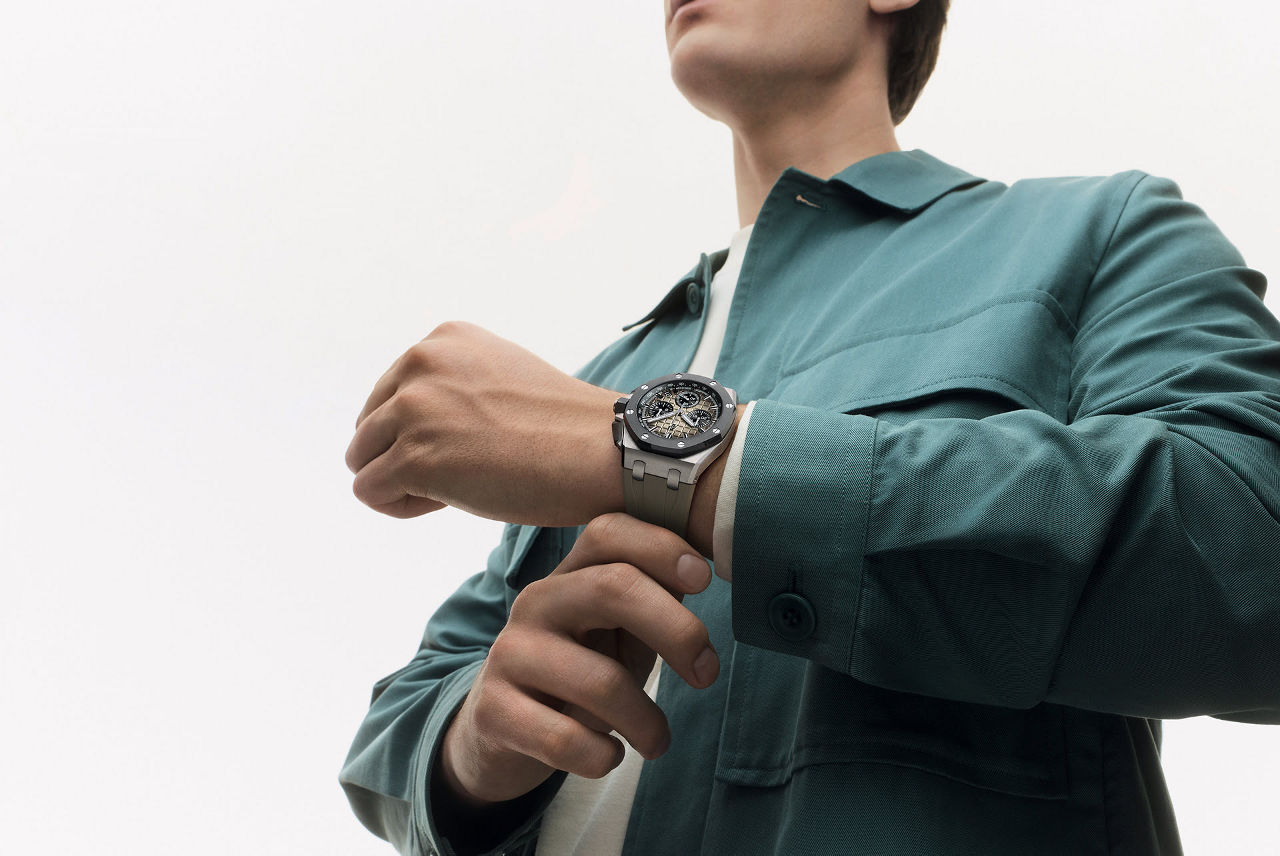Driven by the power of unity and an untameable desire to seek beyond the ordinary, we embraced challenges and took our time to craft the extraordinary.
Presented in three 41 mm references, Audemars Piguet's new selfwinding perpetual calendar movement makes it possible to correct all functions via its "all-in-one" crown.
Code 11.59 by Audemars Piguet Selfwinding Perpetual Calendar
This two-toned wristwatch blending 18-carat white gold with a harmonious blue hue is powered by the new selfwinding perpetual calendar movement.
Discover moreRoyal Oak Selfwinding Perpetual Calendar
Offering the new perpetual calendar movement in an 18-carat sand gold variation, this reference combines cutting-edge technology with aesthetic refinement.
Discover moreRoyal Oak Selfwinding Perpetual Calendar
Welcoming Calibre 7138, this refined stainless steel reference features an elegant tone-on-tone blue dial offering optimal legibility of the perpetual calendar functions.
Discover moreCode 11.59 by Audemars Piguet Grande Sonnerie Carillon Supersonnerie
This 18-carat pink gold reference is fitted with a rare harlequin opal dial offering a unique pattern of iridescent hues.
Discover moreCode 11.59 by Audemars Piguet Grande Sonnerie Carillon Supersonnerie
18-carat sand gold and black ceramic combine in this model specially designed for the 150th anniversary.
Discover moreRoyal Oak Perpetual Calendar "150th Anniversary"
This vintage-inspired timepiece pays a final tribute to Calibre 5135, the historic openworked perpetual calendar movement.
Discover moreCode 11.59 by Audemars Piguet Selfwinding Flying Tourbillon
Presented in an 18-carat sand gold case illuminated with 235 brilliant-cut diamonds, this 38 mm timepiece is equipped with a selfwinding flying tourbillon movement.
Discover moreThe first chapter of the anniversary begins at the House of Wonders, where you can relive 150 years of horological expertise, bold design, and enduring passion.
Travel back in time and immerse yourself into Audemars Piguet's universe through enriched articles, technical sheets of models and calibres as well as exclusive anecdotes and archival footages uncovered by our Heritage team.


| Experience our heritage, craftsmanship and connection to the world in the Musée Atelier Audemars Piguet which pays tribute to the craftspeople who have made what Audemars Piguet is today, generation after generation. |
The AP Coverage Service is a 2-year complimentary service protecting AP watches from burglary and robbery as well as functional damage.







?size=1071,515&fmt=avif-alpha&dpr=off)




















